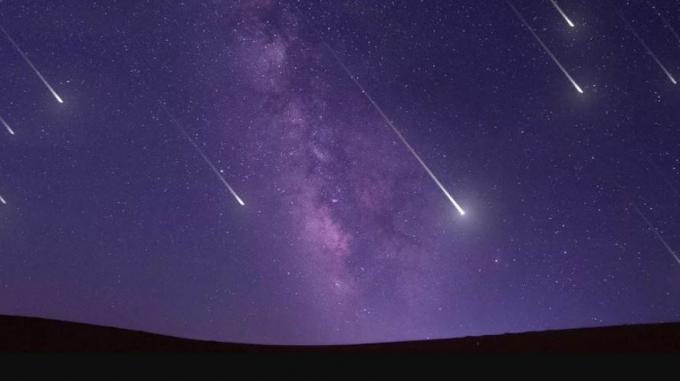After a month of June with clear and easily observable skies, July arrives bringing a series of exciting astronomical spectacles.
With meteor showers, lunar phenomena and planetary conjunctions, each night of this winter month will be an unmissable opportunity to explore the wonders of our solar system.
see more
Japanese company imposes time restriction and reaps benefits
Alert: THIS poisonous plant landed a young man in the hospital
Among all the events that will take place in July, the Supermoon at the beginning of the month and the Delta Aquarids meteor shower in the last few days will be the highlights.
A supermoontook place on the night of July 3, when our satellite was at the closest point to theEarth, known as perigee, and simultaneously in full phase.
At that time, the moon appeared larger and brighter, with an increase of about 10% in its apparent size and approximately 20% in brightness compared to ordinary full phases.

(Image: Shutterstock)
The second must-see event, the Delta Aquarids meteor shower, is a medium-intensity shower capable of producing up to 20 meteors per hour at its peak.
Originated by the debris left by comets Marsden and Kracht, this shower occurs annually from July 12 to August 23.
This year, its peak of activity will be in the evening of July 29th and early morning of July 30th. Although the almost full moon can block the view of the weakest meteors, it will be possible to contemplate the brightest ones.
The best viewing of this phenomenon will occur in dark places after midnight, with meteors radiating from the constellation of Aquarius, although they can be seen anywhere in the sky.
In addition to these amazing events, we will also have several conjunctions between planets, providing an added spectacle. Astronomical observation applications, such as Celeste Chart, Sky Map and Stellarium, can be great allies to identify constellations and other celestial objects.
Check below the calendar of the main astronomical events for July 2023 and get ready to witness a fascinating celestial show:
- 01/07: Conjunction between Mars and Venus
- 03/07: Supermoon
- 10/07: Moon in Last Quarter
- 11/07: Moon and Jupiter conjunction
- 17/07: New Moon
- 20/07: Conjunction between Moon and Venus
- 25/07: First Quarter Moon
- 27/07: Conjunction between Venus and Mercury
- 7/29 and 30/7: Peak activity of the Delta Aquarids meteor shower

